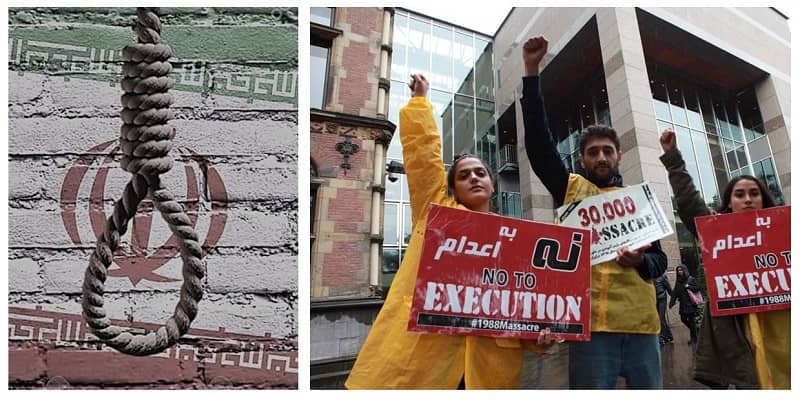
As the world marked International Human Rights Day on Friday, December 10, many countries have committed to taking steps to improve their human rights situations. On the other hand, appeals to the international community continue to pour in to hold the Iranian regime accountable for their mounting human rights violations.
Amnesty International’s Deputy Director for the Middle East and North Africa, Diana Eltahawy stated that Iran “suffers from a deepening human rights crisis” with “thousands persecuted or arbitrarily detained for peacefully exercising their human rights.”
The National Council of Resistance of Iran (NCRI) said, “The human rights advocacy group has previously suggested that this situation is being fuelled by an expectation of impunity on Tehran’s part, which in turn is largely attributable to the relative silence of Western policymakers on various key issues.”
That silence was indicated in June by the international community’s response to the regime’s sham presidential election. During the inauguration of Ebrahim Raisi to the presidential role, the European Union sent a delegation to the event, a move which affirmed Raisi’s legitimacy and which the Iranian Resistance condemned as most Iranian voters had boycotted the election months before.
Amnesty released a statement following the presidential election which stated that the fact Raisi has “ascended to the presidency instead of being investigated for the crimes against humanity of murder, enforced disappearance, and torture,” was a “grim reminder that impunity reigns supreme in Iran.”
The NCRI said, “Earlier on Tuesday, Dec 7, about 100 MEPs also issued a statement urging their own governments and the EU as a whole to formally hold Tehran responsible for a major crime against humanity carried out in the summer of 1988. The call to prosecute Raisi for crimes against humanity was repeated by dozens of MEPs in an international conference on Tuesday.”
Raisi played a leading role in the massacre, being a member of the ‘death commission’ in Tehran that was tasked with sentencing political prisoners to death if they refused to denounce their support of the Iranian Resistance group, the People’s Mojahedin Organization of Iran (PMOI/MEK). Over 30,000 political prisoners were executed across Iran, with 90% of the people being MEK supporters. A crime against humanity, which many legal scholars have since argued was an act of genocide.
The details of the massacre came to light heavily recently in a court of law when former Iranian prison official Hamid Noury gave his testimony at his own trial in Sweden. Noury was arrested in 2019 on a trip to Stockholm and charged with war crimes and mass murder, owing to his role in the 1988 massacre. The trial began in August of this year and is expected to run until April 2022, and has already seen testimonies given from a large number of survivors of the massacre.
The NCRI said, “The MEPs reiterated their expectation on Tuesday that the Noury trial will kick-start a broader inquiry into human rights abuses in general and the 1988 massacre in particular.”
These appeals have been ongoing for many years, but since Raisi’s presidential inauguration they have intensified as judging from his past human rights abuses, it was predicted that further abuses in Iran would increase with him in a position of power, and the past four months have shown that these predictions were well founded.
During the first half of this year, Iran averaged 26.6 executions a month, a figure which jumped to 35.6 between July and November. This indicates the regime’s acceleration of efforts to intimidate the Iranian people and heavily crackdown on dissent. Recent protests led by farmers in Isfahan saw the regime’s security forces attacking the crowds with tear gas and pellet guns, leaving 100 people wounded and 300 arrested. A number of those hit in the face by pellets have been blinded in at least one eye.
The NCRI said, “Similar attacks on protesters have been reported in other regions as well, and Raisi played a role in all these atrocities. Prior to assuming that office, Raisi served for over two years as the head of the judiciary, and beginning in November 2019 he oversaw key aspects of the worst single crackdown on dissent in years.”
During the latter crackdown, 1,500 protesters were killed when security forces opened fire on the crowd of protesters. For those who were arrested during the uprising, they later faced months of systematic torture at the hands of the judiciary.